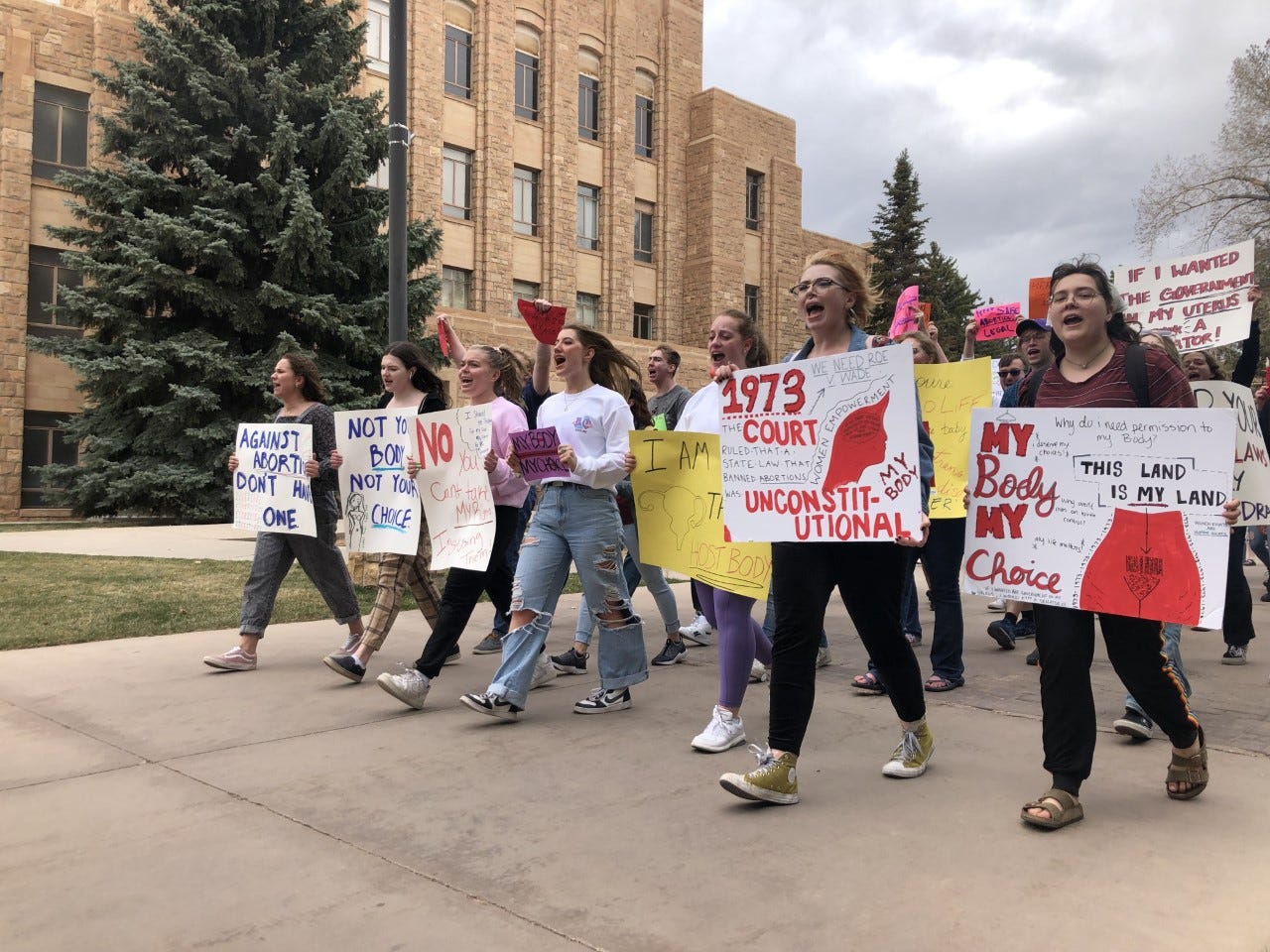Behind the bills: Laramie Democrats back Reproductive Freedom Act
HB76 aims to halt the erosion of abortion rights in Wyoming by declaring residents have a right to the procedure in life-threatening circumstances. Lawmakers also face a bill mandating ultrasounds.

Lawmakers from Albany and Teton County are once again attempting to put a backstop on the erosion of abortion rights in the Cowboy State.
Sponsored by Rep. Mike Yin (HD-16) and co-sponsored by a number of Albany County legislators, House Bill 76, or the “Reproductive Freedom Act” declares “the state shall not deny or interfere with a person’s right to have an abortion” so long as that abortion is sought “prior to viability of the fetus” or in an effort “to protect the person’s life or health.”
Despite its name, the Reproductive Freedom Act does not guarantee the complete protection of abortion rights. Access to abortion would be limited to the specific scenarios listed above. But in outlining those scenarios, the Democrats behind HB76 aim to set a floor for the state’s attempted and possibly imminent abortion restrictions.
Many of the lawmakers endorsing this year’s abortion rights backstop bill also sponsored a bill with similar aims during the 2023 Legislative Session. That bill failed.
“We’re trying to meet folks kind of where we were,” Rep. Karlee Provenza (HD-45) told the Laramie Reporter last year. “Let’s just make our law constitutional again so that we can then talk about how we improve on this.”
This year, Yin, Provenza and other Democrats have brought a bolder proposal — one that seeks to detail the state’s position on abortion and leans more heavily into the language of rights. The bill declares:
“Every person has the right to freedom from governmental interference with respect to personal reproductive decisions.”
But the Reproductive Freedom Act does limit that “right” to pre-viability or life- or health-threatening instances. HB76 also outlines punishments for medical professionals found guilty of providing abortions outside the scenarios listed above, which include possible “imprisonment for not more than one (1) year, a fine not to exceed five thousand dollars ($5,000.00), or both.”
Medical facilities and their staff would not be required to perform or assist with abortions.
“No person or private medical facility shall be required by law or contract to participate in the performance of an abortion if the person or private medical facility objects to participating in the performance of an abortion,” the bill states. “No person shall be discriminated against in employment or professional privileges because of the person’s participation or refusal to participate in the performance of an abortion.”
In addition to Provenza, Yin’s bill is co-sponsored by Rep. Trey Sherwood (HD-14) and Sen. Chris Rothfuss (SD-9) — who each co-sponsored last year’s failed bill too.
Additionally, Albany County’s Rep. Ken Chestek (HD-13) joins this year’s list of co-sponsors. Chestek told the Laramie Reporter last year the only reason he did not support last year’s attempt was that he was unaware of it. Otherwise, his voting history has been consistent with his stated pro-abortion rights convictions. (Chestek voted against last year’s “Life is a Human Right Act.”)
A look back
In 2022, Wyoming passed a trigger ban — a prohibition on most abortions that would go into effect when the U.S. Supreme Court overturned Roe v. Wade. Wyoming was one of several states to pass such a trigger law.
That summer, the court overturned Roe v. Wade. Wyoming’s trigger ban was quickly halted by legal action.
During the 2023 Legislative Session, lawmakers passed a pair of abortion bans — one restricting surgical abortions, the other restricting chemical or medication abortions — which superseded the trigger ban. Those bills are also tied up in the courts as plaintiffs argue they infringe on state constitutional rights.
The opposition
On the other side of the aisle, a coalition of 19 Republicans has brought House Bill 137, “Chemical abortions-ultrasound requirement,” which would require that a pregnant individual, before receiving a chemical abortion, “receive an ultrasound in order to provide the pregnant woman the opportunity to view the active ultrasound of the unborn child and hear the heartbeat of the unborn child if the heartbeat is audible.”
Abortions performed to “save the life or preserve the health of the unborn baby, remove a dead unborn baby caused by spontaneous abortion or intrauterine fetal demise, treat a woman for an ectopic pregnancy, or treat a woman for cancer or another disease that requires medical treatment which treatment may be fatal or harmful to the unborn baby” would be exempted from this ultrasound requirement.
The 2024 Legislative Session is a budget session, meaning non-budget bills must secure a two-thirds vote to pass introduction.




